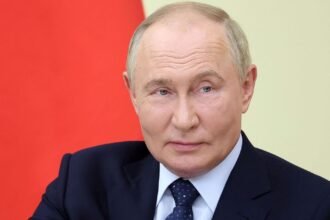WORLD financial and political empires are shifting rapidly; we have to hope that the quakes and maelstroms will not swamp nations and ordinary people who don’t live atop mountains or skyscrapers.
The attempt by the US and the EU to take over Russian sovereign funds that were agreed and guaranteed between nations of the world to be protected is shaking the foundations of international currency and trade. This is after disallowing their banks to transact with each other and disallowing the use of the Swift clearing system. At $300 billion not only to be sequestered but to be used for one side, Ukraine, against Russia in a war, is a clear indication that even major nations’ funds and any assets are not protected by the international multilateral institutions, regardless of contracts, constitutions or agreements. What would that mean for small countries?
Earlier, such sequestration of trade and then of assets themselves was applied to Iran, Iraq, Venezuela, Afghanistan and Libya by the US and its allies. But never on such a scale are or for the active purpose of conducting a war. The amount exceeds the reserves of many nations combined and is nearly the entire gross domestic product of the Philippines, at $400 billion in a year, and is a multiple of the Philippine international debt of $125 billion.
But the quake had an aftershock that registered almost the same on the Richter scale.
Saudi Arabia weighed in and suggested that Saudi would unload substantial European debt if Russian assets were taken over — enough of an unsavory prospect to make the Western nations take over $50 billion income generated by the $300 billion instead of the principal $300 billion itself.
This uncertainty about the sanctity of the international currency system, which underpins the system of trade and the value of assets owned, caused huge shifts in organizational alignments among nations.
Brics, which offers an alternative financial trade and financing regime, continued its rapid increase in membership in what appears to be heading toward a global majority, with 20 nations as members and some 59 more nations observing to see if they will join for a current potential total of 89 nations. Many have agreed to trade with each other in their domestic currencies instead of the US dollar.
Last week’s St. Petersburg economic forum was attended by 139 countries and 21,000 delegates, clearly showing the disaffection of many nations with the current systems, which, while not being abandoned, most of the world’s nations are looking to have alternatives to what are former definitions of the “rules-based order” or what is “a level playing field.”
African nations have asked the French and US to leave and will set up their own currency system. Burkina Faso, Mali and Niger will now form their Sahel region alliance, and some are asking the US to leave. French control of over a dozen African countries and their currencies, commodities and trade was imposed for decades, even after World War II.
Saudi ended only a few weeks ago the exclusivity of its petro-dollar arrangement established in 1974, one of the pillars of American worldwide political and financial strength, allowing the reserve currency of the US dollar such status as to allow limitless borrowing, a power no other nation or even superpower has.
Russia and China installed their international clearing systems, which more nations are using, aside from their own bilateral use of domestic currencies. Many nations will be using the yuan of China since China is the major trade partner of over 120 countries, although it is still far from the level of the US dollar used in international reserves.
Several countries, including Brazil, Russia, India, China, Japan and Sweden, will issue their own CBDCs or central bank digital currencies for more efficient, economic payment systems not requiring long clearing periods, not needing to pay US dollar institution commissions and adding more financial inclusion.
Japan was hit by the financial tsunami of US interest rates, and its currency dropped to the lowest in 38 years, to 160 yen to the US dollar, from 105 yen in 2020. Japan was forced to try to stabilize its currency by spending an estimated $35 billion to lift the yen slightly to 158.9 yen to a dollar.
These are just some of the shifts in the financial system, which will cause massive changes to the economic and, therefore, political power structures. The promotion of the “free, market-based” order by the West is clearly not consistent with the clear struggle for continued control of the policies of other nations that are being applied.
These, apart from changes in technology, social strata, demographics, societal behavior, environment and wars, will cause shifts that used to take decades to take place in time frames of five years or less.
We have to plan and execute plans for both as a nation, communities and individuals for the future of all of us and our children.
More developments and ideas on these will be discussed in this column.
New Worlds by IDSI (Integrated Development Studies Institute) aims to present frameworks based on a balance of economic theory, historical realities, ground success in real business and communities, and an attempt for common good, culture and spirituality. We welcome logical feedback and possibly working with compatible frameworks ([email protected]).






















